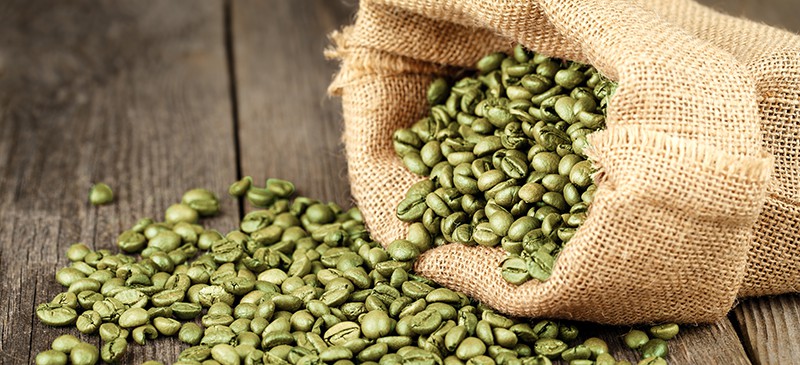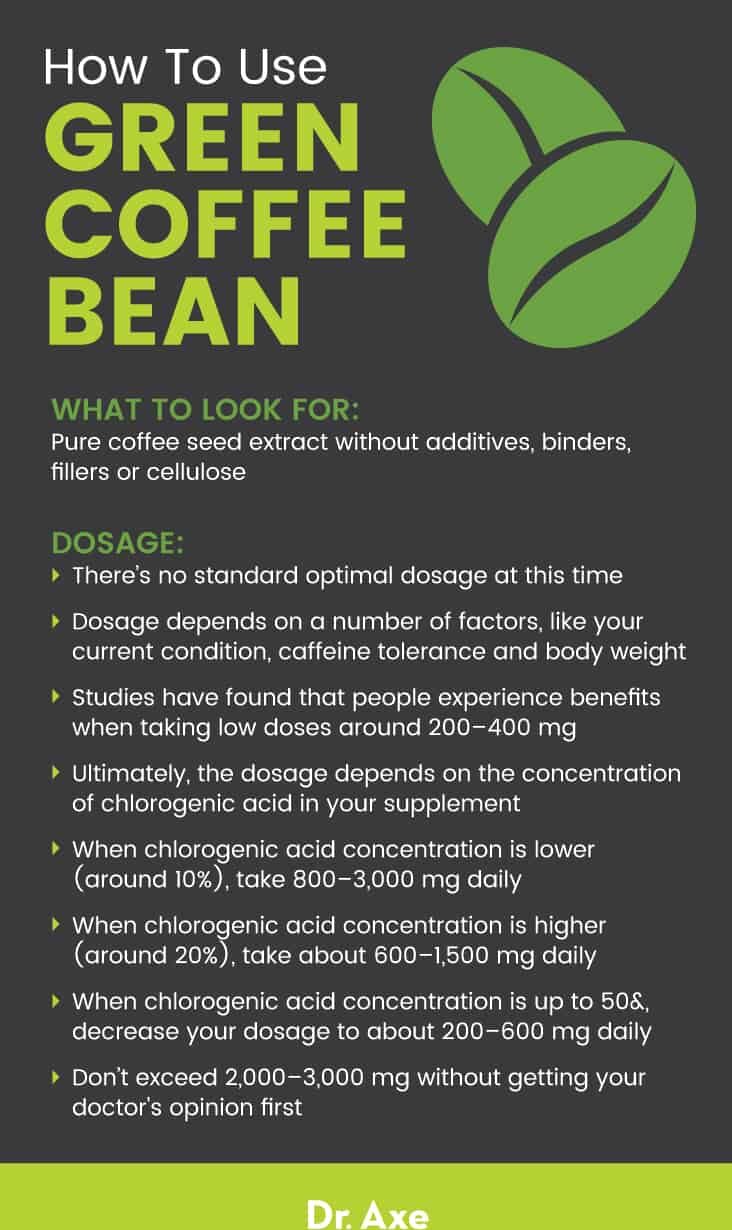This Dr. Axe content is medically reviewed or fact checked to ensure factually accurate information.
With strict editorial sourcing guidelines, we only link to academic research institutions, reputable media sites and, when research is available, medically peer-reviewed studies. Note that the numbers in parentheses (1, 2, etc.) are clickable links to these studies.
The information in our articles is NOT intended to replace a one-on-one relationship with a qualified health care professional and is not intended as medical advice.
This article is based on scientific evidence, written by experts and fact checked by our trained editorial staff. Note that the numbers in parentheses (1, 2, etc.) are clickable links to medically peer-reviewed studies.
Our team includes licensed nutritionists and dietitians, certified health education specialists, as well as certified strength and conditioning specialists, personal trainers and corrective exercise specialists. Our team aims to be not only thorough with its research, but also objective and unbiased.
The information in our articles is NOT intended to replace a one-on-one relationship with a qualified health care professional and is not intended as medical advice.
Green Coffee Bean Extract: Do Benefits Outweigh Risks of This Weight Loss Supplement?
January 31, 2024

You might think of coffee as your “vice,” but believe it or not studies show that in many instances coffee consumers have a lower risk of several serious diseases compared to non-consumers — whether we’re talking traditional coffee, mushroom coffee, or green coffee beans and green coffee bean extract.
Caffeine found in coffee nutrition has always gotten a bad rap, but research suggests that caffeine’s negative reputation may only be a half-truth. Depending on the quantities consumed, caffeine can have both positive and negative effects. “Stimulant” products containing caffeine can affect the absorption of certain minerals, including magnesium, manganese and potassium, and antioxidants substances.
The deep roasting process used to create most commercial coffees reduces the antioxidant content significantly. If you drink one or two cups of coffee per day, you’re probably OK, but when you start drinking more than that, unfortunately your habit is likely to cause high acidity and stress your adrenal glands.
On the other hand, while caffeine isn’t tolerable by everyone and therefore sometimes should be avoided, there’s growing evidence that consuming coffee and other sources of caffeine moderately — including the product called green coffee bean extract — may be beneficial for weight loss and disease prevention.
Green coffee bean has emerged in recent years as one of the most popular supplements and weight loss products available on the market. Besides helping people shed some excess weight by means of reducing appetite, among other ways, green coffee beans have been associated with heart health, protection against neurological diseases and various other anti-aging effects associated with longevity.
Overall, there is still some debate over how effective green coffee bean extract is, including some concerns over whether researchers involved in certain studies have been too biased for the conclusions to be reliable. However, at this time there is reasonable evidence to believe that green coffee beans can have mild to moderate protective effects against many of the biggest health concerns facing us today, similar to some of the benefits of drinking coffee.
What Are Green Coffee Beans?
What is green coffee bean extract exactly, and what makes it different than consuming other coffee products? Green coffee beans, and products labeled as “green coffee bean extract,” come from coffee beans that haven’t been roasted or highly processed.
Normally the beans used to make the black/brewed coffee we drink are roasted at 475 degrees Fahrenheit, which changes the bean’s chemical structure, color, aroma, taste and concentration of nutrients. Rather than being brewed into a drink, pure green coffee bean/seed extract is usually taken in a pill form, made from crushed green coffee beans that have higher concentrations of certain nutrients.
Green coffee is a rich source of several types of antioxidants and other beneficial compounds, including a number of polyphenols. One type of polyphenol called chlorogenic acid is found in high amounts in green coffee beans. Chlorogenic acid is considered one of the most beneficial things about consuming coffee beans and the reason that green coffee supplements are said to act as natural weight loss aids and fat burners.
Unfortunately, roasting coffee beans removes a portion of the chlorogenic acid found in coffee, which is why consumption of pure/unroasted beans is considered to be superior in a number of ways.
A 2008 study published in the Journal of Nutrition found green coffee bean extract contains three types of chlorogenic and caffeoylquinic acids (CGAs), dicaffeoylquinic acids, and antioxidants, including caffeic, ferulic, isoferulic and p-coumaric acid. After giving 10 healthy adults 170 milligrams of green coffee extract, the researchers found that levels of these beneficial compounds were highest between a half hour to eight hours after treatment. The researchers concluded, “This study shows that the major CGA compounds present in green coffee are highly absorbed and metabolized in humans.”
Some research has found that green coffee extract contains about 46 percent chlorogenic acids, along with other hydroxycinnamic acids that are known to have antioxidant health benefits. Together, the total concentration of chlorogenic acid and other hydroxycinnamic acid content is around 57 percent. Caffeine content has been shown to be about 2 percent to 4 percent of most standardized green coffee extract products.
Caffeine Content
How much caffeine is in green coffee bean extract? One cup (eight ounces) of standard brewed coffee has about 95 milligrams of caffeine.
Compared to drinking a regular cup of coffee, green coffee bean can have similar amounts of caffeine, but this ultimately depends on the dosage you take — how many capsules taken at once and how many times per day.
Caffeine content of green coffee beans varies from brand to brand, with about 20–50 milligrams of caffeine per capsule. Dosage recommendations also vary, from about two capsules taken once per day up to three capsules taken three times per day.
This means if you were to follow recommended dosage instructions for most green coffee bean extract products, you’d ingest about 100–450 milligrams of caffeine daily. This is equal to about one to five cups of regular coffee.
Coffee is of course known to increase alertness and energy due to its caffeine and therefore has effects on the release of certain hormones and neurotransmitters.
Is green coffee bean extract considered a “stimulant” then? In most ways, yes.
Caffeine is technically a drug and works in similar ways to some stimulating medications when it comes to affecting functions of the the central nervous system. Most consider caffeine to be a type of stimulant in the methylxanthine class. Methylxanthine stimulants, while they are very commonly used by millions of people each and every day, still have direct and sometimes significant actions on parts of the brain and body that control arousal, vigilance, fatigue, anxiety and sleep.
Green Coffee Bean Extract Benefits
1. May Help With Weight or Fat Loss
Green coffee seed first gained popularity when some studies found that it has the ability to help induce weight loss, and that’s why it may appear in some thermogenic supplements. While it’s certainly not a quick-fix way to reach a healthier weight, research suggests that chlorogenic acid is highly absorbable once consumed and helps the body burn glucose and stored body fat for energy.
It may also reduce inflammation (a root cause of diabetes and other metabolic problems), slow the release of sugar into the bloodstream and help regulate the release of insulin, which brings glucose into the cells.
One animal study published in the Asian Pacific Journal of Tropical Medicine that tested the effects of green coffee bean extract (GCBE) on obese mice found that GCBE “significantly decreased body weight gain, liver weight and white adipose tissue weights with regulation of adipose tissue lipolysis hormones, like adiponectin and leptin.”
At the end of the study, the mice treated with GCBE had lower fat mass compared to mice that were not given GCBD but were fed the same high-fat diet. Overall, the mice given green coffee bean experienced a relative body weight and fat mass decrease that resulted in the researchers stating that “GCBE has a potential anti-obesity effects.”
Similar results have been found in humans as well. For instance, a double-blind, placebo-controlled clinical study in 2021 randomly assigned healthy overweight subjects either 500 milligrams of green coffee bean extract or a placebo daily for 12 weeks. After the 12 weeks, the green coffee bean group displayed significant positive changes in body fat, fat mass and lean mass compared to the control.
These results have been confirmed in several other studies. For example, a 2019 meta-analysis of randomized controlled trials found that study results “support the use of [green coffee extract] supplementation for the improvement of obesity indices,” while another study from 2011 determined that green coffee bean extract “can promote weight loss.”
2. Can Help Normalize Blood Sugar
Scientists say that the positive effects of green coffee bean on blood sugar have to do with its ability to lower inflammation, aid in reaching a healthier body weight and potentially curb cravings for inflammatory foods. At the same time, it may be helpful for lowering glucose levels and potentially increasing energy. While caffeine may have positive effects on metabolic functions, even green coffee bean products that have been decaffeinated seem to still be beneficial.
Green coffee may be able to help normalize blood sugar levels, sometimes significantly, which in turn can lower the risk of type 2 diabetes. An animal study published in Evidence-Based Complimentary and Alternative Medicine found evidence that “decaffeinated green coffee bean extract appears to reverse [high-fat diet]-induced fat accumulation and insulin resistance by downregulating the genes involved in adipogenesis and inflammation in visceral adipose tissue.”
These glucose-lowering effects have also been found to occur in humans.
3. May Help Lower Blood Pressure
Many studies have shown that green coffee extract can be effective in lowering blood pressure. A 2014 study, for instance, found that “green coffee reduces blood pressure and body composition” in healthy people.
There’s also evidence that chlorogenic acid has hypoglycemic agents and may positively affect lipid metabolism, resulting in decreases in cholesterol and triglyceride concentrations in the blood. In one study published in the Journal of Nutritional Biochemistry, rats were given green coffee extract for three weeks to test the effects of chlorogenic acid on fasting plasma glucose, plasma and liver triacylglycerols, and cholesterol concentrations.
It was found that the extract improved several markers. According to the published report, “Fasting plasma cholesterol and triacylglycerols concentrations significantly decreased by 44% and 58% respectively, as did in liver triacylglycerols concentrations (24%).”

4. Has Anti-Aging Effects Due to Containing Antioxidants
In studies where green coffee bean extract has been assessed, many antioxidant properties have been identified that can help slow various effects of aging. As mentioned above, chlorogenic acid is said to be responsible for most of these antioxidant properties of the green coffee bean.
In fact, 49 females with mildly xerotic skin participated in a double-blind, placebo-controlled study, with one group drinking a beverage with polyphenols from green coffee beans and the other consuming a placebo for eight weeks. The women in green coffee group saw “significantly lowered the clinical scores for skin dryness, decreased transepidermal water loss, skin surface pH, and increased stratum corneum hydration and the responsiveness of skin blood flow during local warming.”
While there isn’t a standard recommended intake/value for antioxidant consumption in humans, some experts believe that when a person takes 400 milligrams of green coffee supplements daily (typically broken out into two to three doses), he or she will get a significant portion of the daily antioxidants that a person should aim to obtain from diet.
5. Can Help Improve Energy Levels
Coffee is known to help people feel less tired and increase energy levels because it contains the stimulant caffeine. Caffeine is actually considered a drug and worldwide is the most consumed psychoactive substance there is.
According to the American Psychological Association, caffeine has significant effects on “psychomotor and cognitive performance, psychological well-being, blood pressure, and diagnostic and therapeutic applications, as well as athletic performance.”
When you consume a drink containing caffeine or obtain it from taking a stimulating supplement/product like green coffee bean, the caffeine is absorbed into the bloodstream, where it travels into the brain and blocks an inhibitory neurotransmitter called adenosine. At the same time, levels of neurotransmitters called norepinephrine and dopamine increase, leading to changes in cognition, including increased focus, motivation and often positive outlook.
6. Can Help You Focus and Improve Your Mood
As described above, green coffee products contain a decent amount of caffeine, supplying higher levels when you take a larger dose. A large body of research shows that caffeine/coffee consumption is capable of altering many aspects of mental health and brain function, including attention, mood, memory, alertness/vigilance, motivation, test taking, reaction times, motor control/physical performance and more.
However, not every person reacts positively to caffeine’s effects on cognitive function, so always monitor your own symptoms and consider keeping your dose lower to begin with. You also want to avoid caffeine overdose, so don’t overdo it with green coffee bean supplements.
Risks and Side Effects
Although it certainly has documented benefits, green coffee bean extract isn’t a miracle product. It’s only a tool to help aid you in your efforts to perhaps lose weight or improve other aspects of health.
Keep in mind that while supplements may be helpful, you can also experience significant results simply by changing your diet, decreasing stress, getting enough sleep and regularly exercising (especially HIIT or burst training).
For some people, consuming any source of caffeine, including roasted coffee, can cause side effects, including anxiety and blood pressure problems. For those with a history of caffeine sensitivity or heart problems, it’s important to avoid caffeinated drinks or supplements since this can cause or aggravate heart rhythm abnormalities.
If you notice symptoms like irritable bowel syndrome, constipation, diarrhea, headaches, sleep problems or acid reflux getting worse when you consume caffeine or take green coffee bean products, then it’s best to stop using them and speak to your doctor for advice.
People with any of the following conditions should always speak with their doctors before taking caffeinated products in order to make sure there are no risks involved:
- During pregnancy or when breastfeeding
- Anxiety disorders
- Bleeding disorders
- Diabetes
- Diarrhea
- Glaucoma
- High blood pressure
How to Use (Dosage)
Here’s what to look for in a green coffee seed extract product:
- Make sure the brand you choose only contains pure coffee seed extract and doesn’t contain additives, binders, fillers or cellulose. Organic products are ideal, since this ensures the beans were grown without use of certain chemicals.
- You can find a pure extract at Amazon or your local health food store.
- If you have a history of caffeine sensitivity or heart problems, consult with your doctor first.
How much green coffee bean should you take? This depends on a number of factors, like your current condition, caffeine tolerance and body weight. Many brands recommend taking an amount in the ballpark of 800 milligrams twice daily (30 minutes before meals) to start.
At this time there is no standard “optimal dosage” for green coffee bean extract. Studies have found that people experience benefits when taking low doses around 200–400 milligrams but may experience even stronger effects when increasing dosage up to 800–3,000 milligrams.
Ultimately, the dosage depends on the concentration of chlorogenic acid in your supplement. The higher the concentration of chlorogenic acid, the less you need to take.
Recommended intakes range between:
- When chlorogenic acid concentration is lower (around 10 percent), take 800–3,000 milligrams daily.
- When chlorogenic acid concentration is higher (around 20 percent), take about 600–1,500 milligrams daily.
- When chlorogenic acid concentration is up to 50 percent, decrease your dosage to about 200–600 milligrams daily.
Read directions regarding dosage recommendations, being careful not to exceed about 2,000–3,000 milligrams without getting your doctor’s opinion first.

Final Thoughts
- Green coffee bean extract is a supplement made from unroasted, “pure” coffee beans. It contains high levels of the protective polyphenol called chlorogenic acid.
- Some benefits associated with green coffee bean consumption include weight or fat loss, help with normalizing blood sugar and insulin, heart health, increased energy, cognitive health, and improved moods.
- Those who are easily affected by caffeine or have certain conditions should check with their doctors before consuming too much green coffee bean, as the caffeine can have adverse effects.










